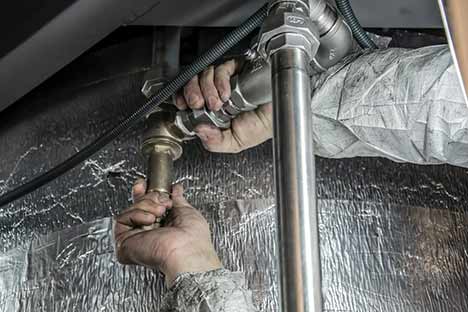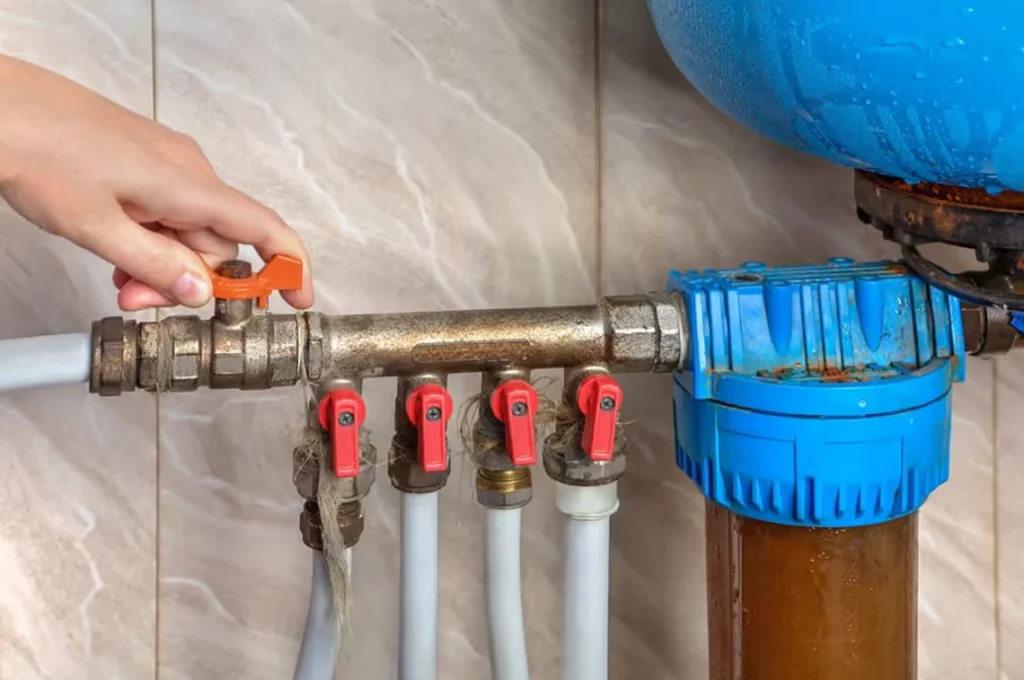Emergency Plumbing Tips: How to Manage Issues Until Support Arrives
Emergency Plumbing Tips: How to Manage Issues Until Support Arrives
Blog Article
What're your thoughts about Plumbing Emergencies: Tips on What To Do Before?

Pipes emergency situations can strike at any time, causing stress and anxiety and prospective damage to your home. Whether it's a ruptured pipeline, a blocked drain, or a dripping faucet, knowing just how to handle the situation till an expert plumber shows up can save you from more issues. This article gives vital emergency pipes suggestions to aid you alleviate damage and gain back control during a pipes crisis.
Switch off the Supply Of Water
The first step in any type of plumbing emergency situation is to shut off the water system. For localized concerns, such as a leaking faucet or toilet, shut off the valve near the component. When it comes to a major leakage or burst pipeline, locate your home's major water shut-off valve and transform it off immediately. Understanding the location of these valves ahead of time can save beneficial time throughout an emergency.
Turn off Your Hot Water Heater
In certain emergency situations, such as a burst pipe, it's important to shut off your hot water heater. This protects against overheating or damages to the unit when water stops streaming. Switch off the power supply to the water heater (electrical or gas) and allow it cool down to prevent possible threats.
Temporarily Stop a Ruptured Pipeline
A burst pipe can cause significant water damage in mins. To minimize the issue:
Call a professional plumbing promptly to resolve the trouble permanently.
Have an Emergency Plumbing Kit
Prepare a fundamental plumbing emergency situation package to take care of small concerns effectively. Your kit ought to include:
Having these devices handy can make a considerable distinction in your capability to handle emergency situations.
Unclog Drains Safely.
A blocked drain can be an aggravating and untidy issue. Here's how to tackle it:.
If these methods do not function, prevent using too much pressure, as it may worsen the clog.
Take Care Of Overflowing Toilets.
An overflowing toilet can create instant mayhem. Here's what you need to do:.
Address Little Leaks with Momentary Fixes.
Tiny leaks can promptly end up being significant troubles if left unchecked. Make use of these momentary repairs until expert help shows up:.
While these solutions aren't permanent, they can help lessen water loss and damages.
Handle Frozen Pipeline Very Carefully.
In cooler climates, frozen pipes are a typical emergency situation. If you believe an icy pipe:.
Know When to Call a Professional.
While quick fixes can help temporarily, certain pipes concerns call for prompt specialist focus. Call a plumber if:.
Promptly contacting an expert ensures the concern is dealt with appropriately and avoids more problems.
Protect against Additional Damages.
Taking quick action to reduce damage can conserve you money and time in the future. Below's how:.
Verdict.
Plumbing emergency situations can be frustrating, but with the ideal expertise and devices, you can manage the situation successfully till help shows up. By shutting off the water, addressing small leakages, and making use of temporary fixes, you can reduce damages and keep your home safe. Keep in mind, these ideas are momentary options; constantly get in touch with a qualified plumber to handle the root cause of the problem. Prep work and fast reasoning are your ideal allies in any kind of pipes emergency situation.
8 Helpful Tips for Managing Plumbing Emergencies at Home
If your plumbing system hasn’t failed once, wait for it because almost everyone has a story to tell. Sometimes, it could be simple emergencies such as a leaking pipe, a blocked cistern, or even a big burst pipe. In situations like this, you need to have some handy tips to save you some money and from possible damages.
Take care of minor issues early.
Sometimes, you could have avoided an emergency by taking proactive measures while it was still early. Some major plumbing emergencies can be a result of an ignored minor issue. We recommend that you have items like plumbing tapes and other related items. A plumbing tape can allow you to manage minor leaks before the plumber arrives.
Cut off the water supply.
This tip is essential in almost any type of leakage problem. For problems like minor leakages in the toilet or kitchen, turn off the supply that takes water to the affected pipes. If the leakage is a major pipe, you must shut off the supply valve to the entire building. This will help you avoid flooding your home and neighbors if you share a flat.
Know your plumbing system
Folks typically move into a new apartment without understanding the water supply around the building. This can prove disastrous if a water emergency arises and the plumber is far away. The previous tip will prove useless if you don’t practice this one. More importantly, know where your water shut-off valve is located – you’ll need that knowledge to prevent potential home floods.
Have some common handy tools
There are lots of plumbing emergencies that you can handle without hiring a plumber. That’s why you must keep some tools available always. Some tools that you can use to fix simple plumbing emergencies easily include plumbing tapes, screwdrivers, thread seal tapes, plungers, pliers, tape measures, and rubber gloves.
Insulate your pipes from cold
You’ll save yourself from many plumbing expenses if you protect your water pipes from the cold. This is because of the harmful effects that cold weather can have on your pipes. During winter, your pipes can burst from being overly expected to freezing temperatures. So, make sure insulators are there to keep the pipes working correctly.
Avoid practices that will clog your toilet.
Many people indulge in practices that can damage the plumbing system of the entire building. One of these is when they use their toilet to dispose-off garbage. They flush all kinds of things, such as paper towels, bandages, hairs, female sanitary products, etc., down the toilet. This will block your toilet in the long run, incurring unnecessary expenditures. Dump such waste in the trash instead.
Check your dials regularly.
Sometimes, there could be leakages in your home without noticing them in time. So, constantly monitor your water meter dial. If the dial is reading when there is nobody using water, this is an indicator that there is leaking. Check for leaks immediately. Call a plumber as soon as possible if you can’t find any.
https://www.constructionplacements.com/8-helpful-tips-for-managing-plumbing-emergencies-at-home/

I'm just very enthusiastic about Expert Tips for Emergency Plumbing Repairs and I am hoping you enjoyed my piece. If you appreciated our article kindly make sure you remember to pass it around. Thanks for being here. Come back soon.
Book Report this page